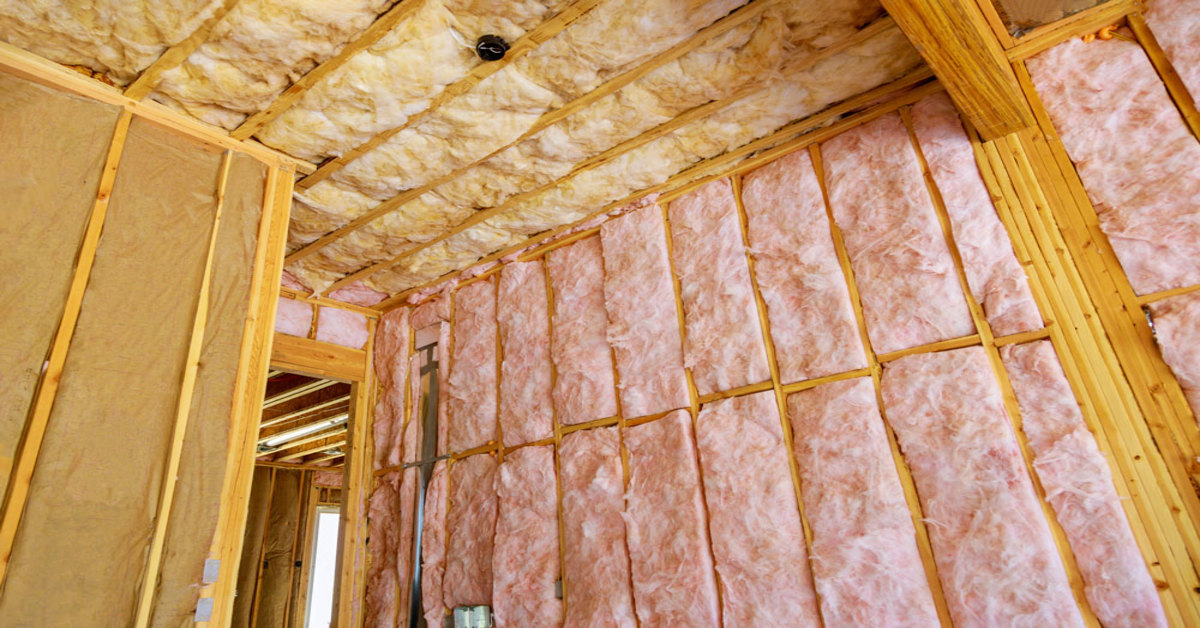Insulation is one of the best ways of regulating the temperature inside your home when the weather conditions outside are hostile. But what purpose does it serve; does insulation keep your house warm or cold? The answer depends on a few factors, including what type of insulation you have and its location in your home. In this post, we explain all the things you might not have known about insulation services in Tualatin.
What is insulation?
Insulation is a material placed in walls, ceilings, crawl spaces, and floors to keep a home warm or cool. This material plays a vital role during the summer and winter seasons by helping to generate the temperatures inside your Tualatin Oregon home, making the environment more livable.
How does insulation work in a home?
When inside temperatures are warmer than the outside, heat from inside tries to escape through your walls and windows; likewise, in the winter, cold air will try to enter the house through those same areas. The insulation acts as a barrier to slow down this heat flow (or cold) until there is a balance between indoor and outdoor temperatures.
How does insulation help in the summer?
Insulation helps keep your house cool by slowing down how quickly heat gets in through walls, ceilings, and floors. Your AC unit can then stay off for extended periods during the day or night, saving you money in the form of electricity costs.
In addition to keeping your home cool during the peak summer months, it also helps to avoid uncomfortable heat buildup in the evening. This is especially important for homes that don’t have central air conditioning or need additional help cooling down after a long day of doing activities inside your home.
How does insulation keep you warm in the winter?
During the winter, insulation helps keep your house warm by slowing down how quickly heat escapes from inside. This means your furnace or heat pump can run less during the day and night to maintain an even temperature in every room. It also helps reduce the amount of energy lost through windows and doors, keeping you warm while saving you money on electricity bills.
Where should insulation be placed in a home?
The attic is the number one location for insulation in Tualatin, Oregon. Heat rises, so it’s vital to have an outstanding layer of insulation in your ceiling. This layer slows down heat traveling from floor to ceiling. Typically, you want enough material that you can’t see through with the naked eye. Many homeowners mistakenly believe that this layer will be adequate if it’s 10 inches or more; however, rigid material should generally be applied in a thickness of 12 to 15 inches.
What are the different types of insulation available on the market today?
There are multiple types of insulating materials: fiberglass, foam, and cellulose. The kind you choose largely depends on the size of your attic space.
Cellulose is the most efficient due to its lightweight and streamlined design, but it only works well in small spaces. Spray foam insulation is excellent for large attics because it expands quickly into any shape.
Fiberglass blankets are ideal for between wall areas and heating ducts as they do not have an odor or require permits when installed by professional insulation contractors in Tualatin, Oregon. As a general rule of thumb, choosing an insulation material rated for durability and energy efficiency is more important than buying a less expensive option.
How Do the Different Types of insulation Perform?
Fiberglass insulation installation is easy and doesn’t require any special equipment. It also performs well when wet, whereas spray foam insulation is affected by water, which reduces the effectiveness of your insulation package. In addition, fiberglass material does not off-gas toxins into the air like foam packaging; however, it’s prone to insect infestation if not installed correctly.
Foam insulation is more efficient than fiberglass in terms of energy savings. It’s ideal for homeowners in Tualatin, Oregon, with a tight budget as it costs less to install. Nevertheless, it takes up more space inside the attic. The foam also has an odor during application and requires special equipment to complete the installation services. The material is not practical in attics that are accessible to children as it poses a choking hazard.
Cellulose is the lightest insulation material available on the market today, so it’s used in most homes with limited attic space or those undergoing remodeling operations. It reduces your energy bill without taking up too much room inside your home and helps to improve air quality with its all-natural makeup. The downside is that cellulose can only handle limited amounts of moisture. As a result, it may be compromised if water gets into the insulated area during rain or snow events.
How can I tell if there is a problem with the insulation in my house?
Licensed insulation contractors in Tualatin, Oregon, can perform a home insulation audit to determine the need for insulation. This will reveal the rate of energy efficiency in your home and whether or not you need professional insulation services. If you are looking for a way to save money on your home energy bill, scheduling an appointment with Insulation contractors in Tualatin is a great place to start.
Conclusion
Insulation is a critical component in any home, and for a good reason. It helps keep your house warm during the winter months and cool during the summer. Looking for professional insulation contractors in Tualatin, Oregon, give us a call today at (503) 640-9000.
FAQ
Does insulation make a house warmer?
No, you need a heating system for that. Insulation keeps heat inside the structure of the building by air sealing or restricting airflow from one location to another.
What is R-value?
It stands for ‘resistant value .’ It refers to how effectively an insulating material will resist heat flow over time. The higher the R-value, the better the material will be at preventing heat transfer.
Which insulating material would best keep a house warm in winter?
Since insulation aims to keep warmth in, it would make sense that investing in a higher R-value material would be best. Your local insulation contractors will help you select the best choice available based on your location of residence and the existing conditions.

